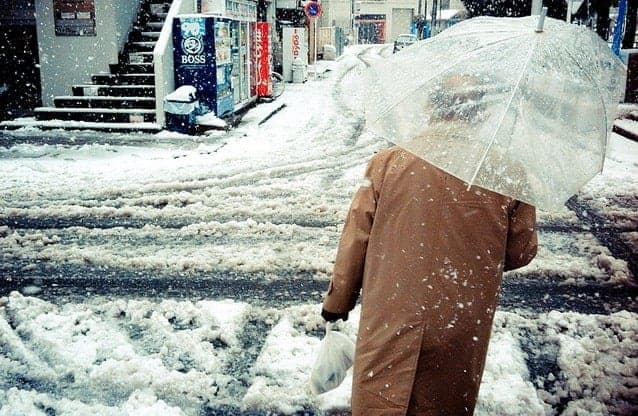Dropping temperatures and rising atmospheric pressure are linked to an increased risk of dangerous cardiac events and even death, suggests a new study.
Researchers from two universities in Quebec, Canada conducted a long-term assessment on the health of more than 112,000 individuals with a diagnosis of heart failure and found that precipitous changes in the environment don’t bode well for a person’s health.

“Our study suggests that exposure to cold or high-pressure weather could trigger events leading to hospitalization or death in heart failure patients,” said the study’s lead author Pierre Gosselin, a professor at the Universitié Laval in Canada.
“This means that they should avoid exposure to fog and low cloud weather in winter as they often accompany high pressure systems,” advised Gosselin.
Gosselin and fellow researchers tracked the large cohort of study participants for nearly two years, monitoring their health while also taking stock of environmental conditions – including “temperature, humidity, atmospheric pressure and air pollutants.”
They discovered that dangerous events occurred on something of a sliding scale – for every two-degree dip in temperature over a week’s span, study participants were 0.7 times more likely to suffer death or a hospitalization.
Also, for each tick up in atmospheric pressure, those with heart failure saw a 4.5 percent greater risk of death or hospitalization.
“We know that doctors rarely take the weather forecast into account when treating or making recommendations to heart failure patients,” said Gosselin.
The new study calls into question the considerations that medical professionals may have to take into account when treating patients with heart failure as global weather conditions continue to change.
“With the extreme differences in temperature due to climate change, we wanted to show how the weather is becoming a more relevant factor. Our study shows that exposure to cold or high-pressure weather could trigger events leading to hospitalization or death in heart failure patients,” said Gosselin.
Related: Cold Weather May ‘Kickstart’ Flu Epidemics Each Year
Reporting in the journal Environmental International, the researchers add to a growing body of evidence tying health challenges to significant weather events.
“Climate changes affect, above all, vulnerable populations, including individuals with chronic diseases, elderly and disadvantaged people,” write the researchers.
“Extreme temperatures, such as extended heat waves or cold snaps, increase morbidity, mortality and health resource utilization for heart failure (HF) when combined with an advanced age and a low-income neighborhood,” they write.
The researchers speculate that certain physical responses to changing weather patterns may play a role in dangerous health events, particularly for those in a compromised position. For example, when the air turns colder, the heart must beat faster to keep the body warm. Also, the body constricts its arteries when faced with cold weather, which can disrupt blood flow and result in elevated blood pressure.
The researchers also speculate that hormonal changes that occur when the temperature drops may be at play as well.
Ultimately, the new research “paves the way to the realization of further studies in order to support the surveillance of chronic cardiovascular diseases in a context of climate changes,” write the study authors.
Richard Scott is a health care reporter focusing on health policy and public health. Richard keeps tabs on national health trends from his Philadelphia location and is an active member of the Association of Health Care Journalists.


![How To: ‘Fix’ Crepey Skin [Watch]](https://cdn.vitalupdates.com/wp-content/uploads/2017/05/bhmdad.png)












